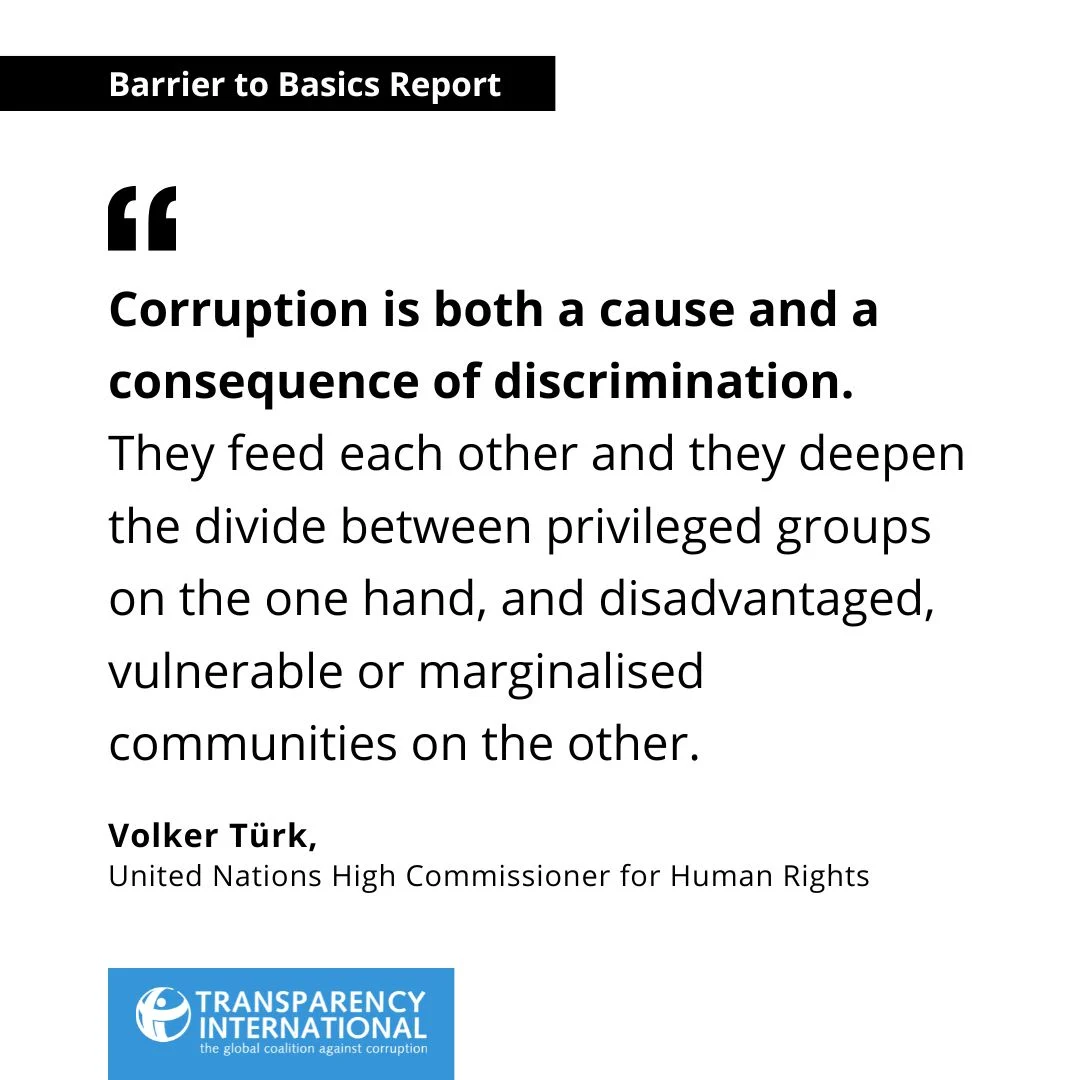
Newsletter Subscribe
Enter your email address below and subscribe to our newsletter

Enter your email address below and subscribe to our newsletter

In a powerful foreword to Barrier to Basics, the latest report from Transparency International, Volker Türk, the United Nations High Commissioner for Human Rights, has spotlighted the symbiotic relationship between corruption and discrimination, calling them “both a cause and a consequence” of one another.
Türk’s statement underlines how deeply intertwined these systemic issues are, warning that they not only perpetuate social injustice but also reinforce barriers to basic human rights, particularly for marginalised communities.
“Corruption is both a cause and a consequence of discrimination. They feed each other and deepen the divide between privileged groups on the one hand, and disadvantaged, vulnerable or marginalised communities on the other,” Türk wrote.
The Barrier to Basics report provides a stark assessment of how corruption acts as a critical barrier to fundamental rights like healthcare, education, clean water, and legal protection. For communities already marginalised due to race, ethnicity, gender, or socio-economic status, corruption only widens existing gaps.
As documented in the report, corruption often manifests in discriminatory practices—ranging from bribes for accessing healthcare to biased distribution of public resources. These practices disproportionately affect those who are already vulnerable, effectively locking them out of essential services and protections.
In countries where corruption is rampant, access to basic rights is often determined by wealth, influence, or connections—leaving behind millions who cannot afford to pay bribes or navigate complex and biased bureaucratic systems.
The relationship between corruption and discrimination is cyclical. Discrimination can lead to exclusion from public life, reducing accountability and creating fertile ground for corruption. Conversely, corrupt practices can institutionalise discrimination, embedding bias within public and private systems alike.
This dynamic is particularly dangerous in fragile democracies or authoritarian regimes, where legal safeguards are weak and civic space is shrinking. Transparency International’s research has found that in such contexts, corruption and discrimination reinforce each other, creating a downward spiral that is extremely difficult to reverse.
In Ireland and across the EU, issues such as institutional bias and unequal access to housing and justice are increasingly under scrutiny. While corruption levels may differ, the fundamental truth remains: systemic inequality cannot be effectively addressed without tackling corruption.
The Barrier to Basics report doesn’t stop at diagnosis—it also issues a call to action. Governments are urged to prioritise anti-corruption strategies that are rooted in human rights. This includes transparent governance, inclusive policy-making, and the protection of whistleblowers and civil society actors.
The report also emphasises the importance of data disaggregation to uncover how corruption affects different social groups. Without this visibility, efforts to combat corruption risk perpetuating the very inequalities they aim to resolve.
For example, targeted anti-corruption measures in countries such as Kenya, India, and Brazil have shown promise when accompanied by legal empowerment initiatives for marginalised communities. These efforts demonstrate that inclusive and transparent governance is not only fairer but more effective in the long run.
Türk’s foreword serves as a reminder that corruption is not just a governance issue—it is a human rights crisis. As the global community continues to grapple with inequality, climate change, and political instability, addressing corruption through a human rights lens is more urgent than ever.
This sentiment echoes previous calls made by organisations across Europe, including those advocating for stronger anti-corruption legislation in Ireland, more transparent housing policy, and protection of migrant rights.
By framing corruption as a human rights issue, Barrier to Basics challenges the international community to move beyond punitive measures and toward systemic reform—where the most marginalised are not just protected, but empowered.